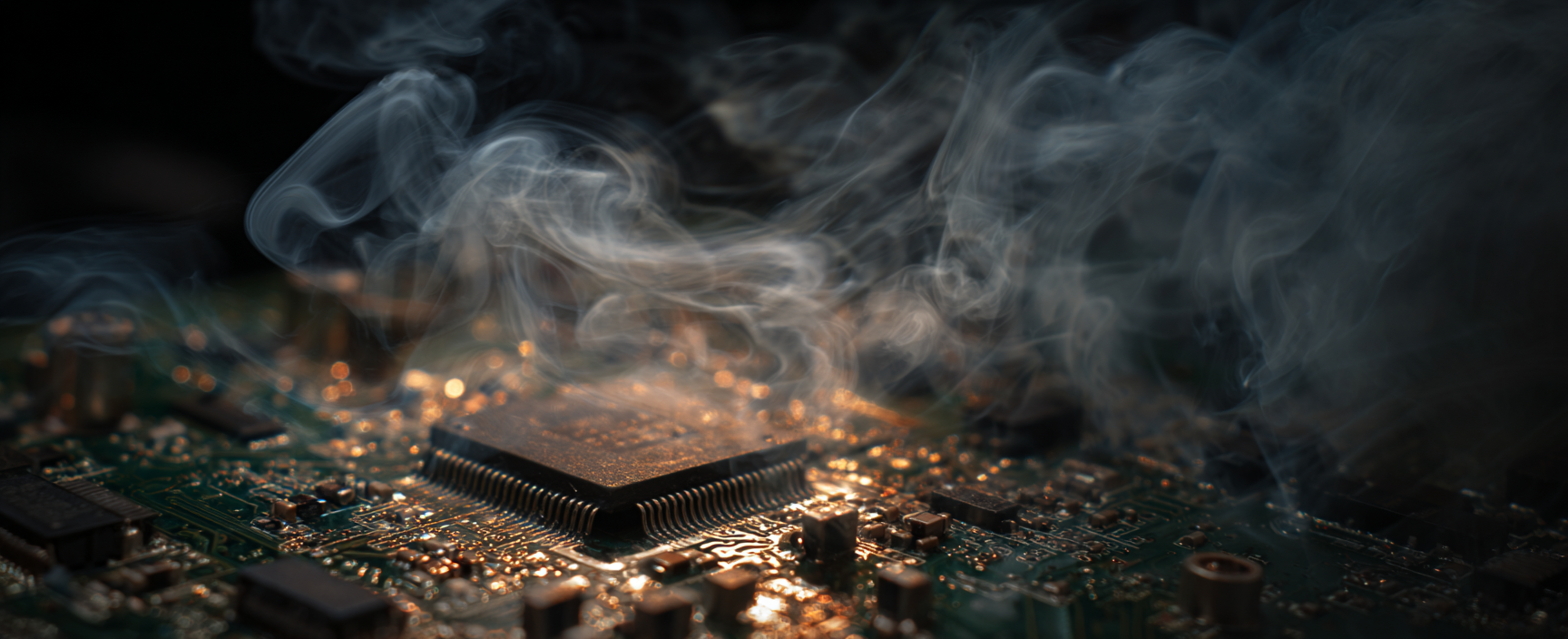
Does ozone damage electronics? (Yep! Here's How.)
Does ozone damage electronics? The answer is yes - ozone can seriously harm your valuable electronic devices and equipment. As an oxidizing agent, ozone aggressively corrodes metal components and degrades plastic parts found in computers, phones, and other electronics.
How Ozone Affects Electronics
When ozone comes into contact with electronic components, it triggers chemical reactions that can:
- Corrode circuit boards and metal contacts
- Break down plastic housings and insulation
- Damage sensitive semiconductor materials
- Accelerate wear on moving parts
Signs of Ozone Damage
Common indicators that ozone is affecting your electronics include:
- Discoloration of plastic components
- Brittle or cracking wires and cables
- Erratic device behavior or failures
- Visible corrosion on metal parts
Protecting Your Electronics
The best defense against ozone damage is prevention. Consider these protective measures:
Use a quality air purification system like the XPOWER AP-2000 Portable HEPA Air Filtration System to remove ozone from your indoor air.
Store sensitive electronics in sealed containers or Faraday protection cases when not in use.
For critical equipment, maintain controlled environments with proper ventilation and filtration.
When high ozone levels are present, unplug and cover electronic devices to minimize exposure.
Does ozone damage electronics? Without proper protection, this reactive gas can significantly reduce the lifespan of your valuable devices through corrosion and degradation of components.
Does ozone damage electronics? Understanding the real impact of ozone on electronic devices is crucial for protecting your valuable equipment. Beyond just surface-level damage, ozone penetrates deep into electronic components, causing long-term deterioration that often goes unnoticed until it's too late.
The Science Behind Ozone Damage
At the molecular level, ozone attacks electronic components in several ways:
- Breaks down rubber and plastic seals
- Creates micro-fractures in circuit boards
- Oxidizes copper and other conductive materials
- Degrades LCD screens and displays
High-Risk Electronic Equipment
Some electronics are particularly vulnerable to ozone exposure:
- Computer servers and networking equipment
- Medical devices and diagnostic tools
- Smart home systems and controllers
- Battery charging stations
- Solar power inverters
For critical equipment like power inverters and solar systems, ozone protection becomes even more essential.
Long-Term Effects
The cumulative impact of ozone exposure includes:
- Shortened device lifespan
- Increased maintenance costs
- Reduced performance reliability
- Higher failure rates
Installing a quality air purification system helps remove ozone and other harmful contaminants from your indoor air.
Protection Strategies
Take these steps to shield your electronics from ozone damage:
- Monitor indoor ozone levels regularly
- Keep equipment in climate-controlled spaces
- Use protective cases and covers
- Install ozone-removing air filters
Does ozone damage electronics? Yes - and protecting your devices requires proactive measures to prevent costly damage and maintain reliable operation.
Does ozone damage electronics? The risks extend beyond what many people realize. When ozone gas interacts with sensitive electronic components, it creates subtle but progressive damage that compromises performance and shortens equipment lifespan in ways you might not immediately notice.
Ozone's Impact on Different Electronic Materials
Electronics contain various materials that react differently when exposed to ozone:
- Silicone components become brittle and crack
- Solder joints weaken due to oxidation
- Microcontroller surfaces develop microscopic pitting
- Thermal interface materials degrade, reducing cooling efficiency
- Electrolytic capacitors fail prematurely when ozone attacks their seals
This affects everything from your everyday devices to specialized equipment like atmospheric water generators and power inverters.
Environmental Factors That Increase Risk
Certain conditions make ozone damage worse:
- High humidity accelerates corrosion when combined with ozone
- Temperature fluctuations expand and contract materials, allowing deeper ozone penetration
- UV light exposure creates a synergistic damaging effect with ozone
- Dust accumulation holds ozone against surfaces, concentrating exposure
Testing for Ozone Damage
How can you tell if ozone is affecting your electronics?
- Check for yellowing on white plastic components
- Look for unusual tarnishing on metal surfaces
- Test for increased electrical resistance in circuits
- Monitor for unexplained performance issues that worsen over time
Advanced Protection Strategies
Beyond basic precautions, consider these specialized approaches:
- Apply conformal coatings to circuit boards in high-ozone environments
- Install air purification systems with activated carbon filters specifically designed to remove ozone
- Create positive pressure environments for server rooms and electronics storage
- Use ozone-resistant enclosures for critical equipment
For valuable electronics, consider the XPOWER AP-2000 Portable HEPA Air Filtration System, which helps remove harmful ozone alongside other air contaminants.
Frequently Asked Questions
Can ozone damage cause data loss?
Yes. Ozone can degrade storage media components over time, potentially causing data corruption in hard drives and solid-state storage.
Are some brands more resistant to ozone damage?
Some manufacturers use ozone-resistant materials and coatings, but most consumer electronics lack specific ozone protection.
How quickly does ozone damage electronics?
Damage accumulates gradually, with noticeable effects typically appearing after months or years of exposure, depending on concentration levels.
Does ozone from air purifiers damage electronics?
Some air purifiers intentionally generate ozone, which can damage nearby electronics. Always choose ozone-free purifiers for spaces containing valuable equipment.
Can I repair ozone-damaged electronics?
Minor damage may be repairable by replacing affected components, but extensive oxidation usually means replacement is more cost-effective.
Does ozone damage electronics? Absolutely—and taking proactive steps to protect your devices is essential, especially for preppers and those concerned with equipment longevity. Investing in quality air filtration and proper storage solutions will help preserve your electronics against this invisible threat.


Leave a comment